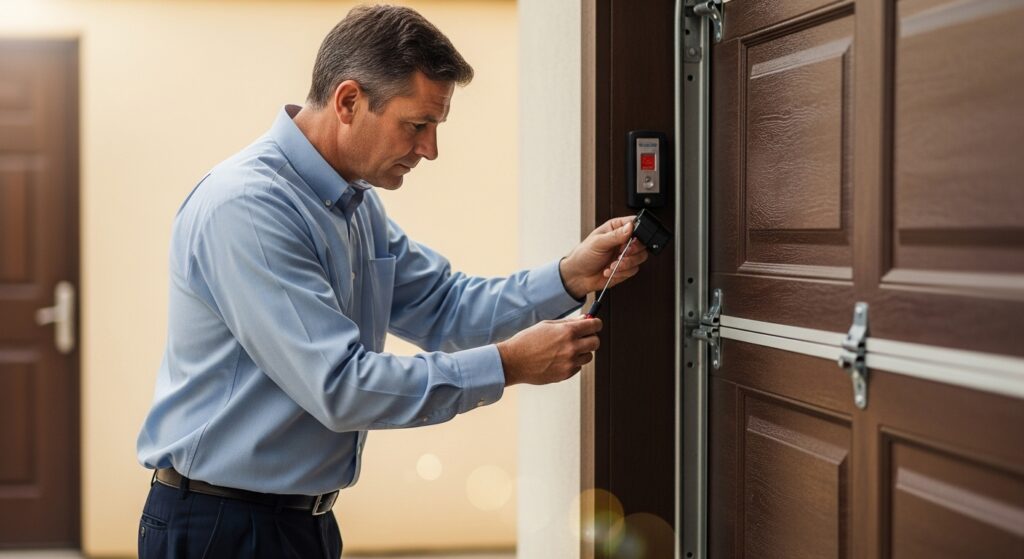Your garage door opener is supposed to offer seamless, safe entry and exit—but when it malfunctions, the issue often lies with the sensors. These small but critical components can halt your entire garage system when they stop working correctly. Understanding how sensors and openers function together can help you recognize when it’s time to call for professional sensor repair.
How Garage Door Sensors Work
Most modern garage doors are equipped with safety sensors—also called photo-eye sensors—that sit just a few inches above the floor on each side of the door. These sensors communicate using an invisible infrared beam. When the beam is interrupted, the door will stop closing and reverse, preventing accidents or damage.
These sensors are essential for safety, especially in households with children or pets. That’s why keeping them in working order—and seeking timely sensor repair when needed—is so important.
Signs Your Garage Door Sensors Need Repair
Sensor issues can manifest in several ways. Watch for these signs that your safety sensors might be failing:
- Garage door won’t close: If the door opens but won’t close, your sensors may be blocked, misaligned, or malfunctioning.
- Flashing lights: Many opener systems use blinking indicator lights to show sensor alignment issues.
- Door reverses unexpectedly: The sensors may be detecting a false obstruction.
- One or both sensors have no light: This can indicate a power issue or disconnected wiring.
If you’re experiencing any of these symptoms, it’s time to look into a professional sensor repair before more serious issues arise.
What Causes Garage Door Sensor Problems?
There are several common reasons why your garage door sensors may stop working:
- Dirt or debris: Dust or cobwebs can block the sensor lenses and interrupt the beam.
- Sensor misalignment: If one sensor is even slightly out of line, the system won’t work correctly.
- Wiring issues: Loose, frayed, or damaged wires can break the connection between sensors and the opener.
- Sunlight interference: Direct sunlight can sometimes interfere with infrared beams.
While some issues may be simple to troubleshoot, others require expert-level diagnosis and sensor calibration.
Understanding Opener and Sensor Integration
Garage door openers and sensors are interconnected. Even if the opener motor works fine, malfunctioning sensors can prevent the door from functioning altogether. This is why it’s important to look at the full system—not just one component—when problems arise.
When you schedule a sensor repair, a professional can also inspect your opener for other related issues, such as faulty logic boards, worn gears, or misprogrammed settings.
Why You Shouldn’t Ignore Sensor Repairs
Safety sensors are more than just a convenience—they’re a critical safety feature. Operating a garage door without working sensors can pose serious risks, including property damage or injury. If the door fails to detect an object or person in its path, the consequences could be severe.
That’s why timely sensor repair is vital. It ensures your system remains safe, compliant with modern standards, and fully functional for everyday use.
Preventative Tips to Avoid Future Sensor Problems
Here are a few simple steps to maintain your sensors and extend their lifespan:
- Wipe the lenses regularly with a soft cloth to remove dust or debris.
- Make sure nothing is stored in front of the sensors, especially near the floor.
- Check alignment monthly and adjust if one sensor seems out of position.
- Inspect wiring periodically for wear or disconnection.
Final Thoughts
Your garage door system relies on the proper function of both the opener and safety sensors. When one part fails, it can affect the whole operation. Don’t ignore the warning signs. A quick, professional <a href=”ht

